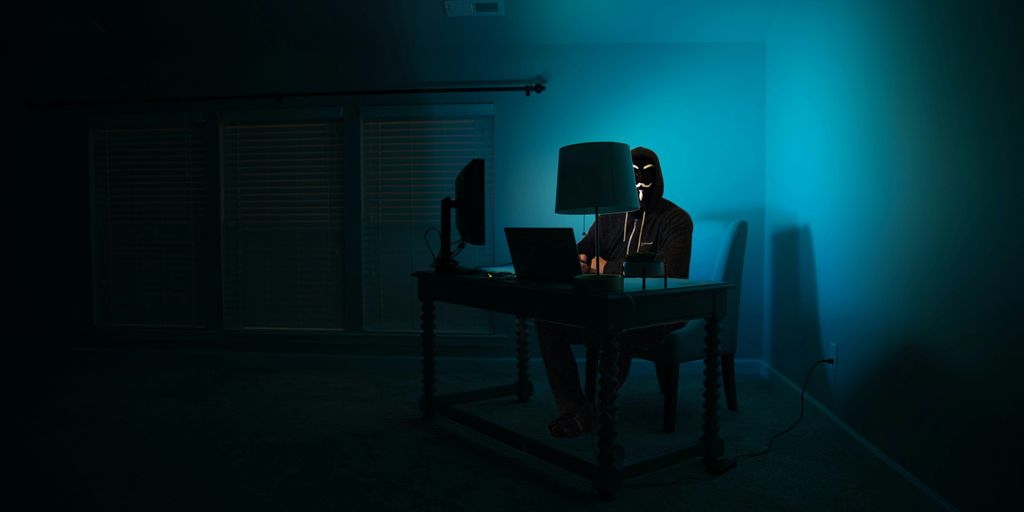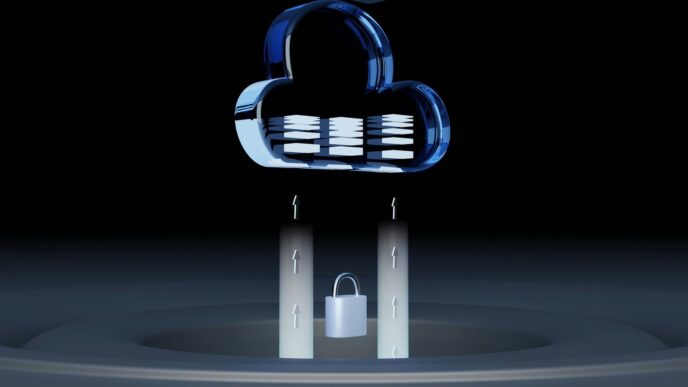The world of cyber threats is always changing, and those who want to break into our digital systems are always getting better at what they do. It’s a constant fight, and both companies and people are right in the middle of it. We’re up against people who do this for all sorts of reasons. To really keep our digital spaces safe, we need to get a handle on why cyber hackers do what they do. Understanding what makes them tick is the first step in staying protected.
Key Takeaways
- Cyber hackers are driven by a mix of financial gain, political aims, and personal grudges.
- Many hackers are motivated by curiosity and the thrill of solving complex technical puzzles.
- Common psychological traits among cyber hackers include high intelligence, creativity, persistence, and a liking for risk.
- Anonymity online allows cyber hackers to feel detached from consequences, encouraging bolder actions.
- The hacking scene has evolved from individual tech enthusiasts to large, organized criminal groups with specialized roles.
Understanding the Diverse Motivations of Cyber Hackers
It’s easy to think of hackers as a single, shadowy group, but the truth is, they’re driven by all sorts of reasons. It’s not just about breaking into systems; there’s a whole spectrum of what gets them going. Understanding these different drivers is key if we want to get a handle on the digital threats we face every day.
The Allure of Financial Gain
Let’s be real, money talks. For a lot of hackers, the main goal is simply to make a profit. This can mean stealing credit card numbers to sell on the dark web, locking up company data and demanding a ransom to get it back, or even just outright stealing sensitive information that can be monetized. It’s a business for some, albeit a very illegal one. The sheer amount of money involved can be staggering, making it a powerful draw for those looking for a quick, albeit illicit, payday. This is a big reason why we see so many attacks focused on financial institutions or companies holding valuable customer data.
Political Agendas and Espionage
Then you have the hackers who are all about politics or national interests. These folks, sometimes called hacktivists or state-sponsored actors, use their skills to push a political message, disrupt operations of governments or organizations they disagree with, or even steal classified information for their country. Think of it as digital warfare or spying. Their actions can have huge international implications, affecting everything from elections to global security. It’s a different kind of motivation, one that’s less about personal wealth and more about ideology or national advantage. Sometimes, these groups might even release sensitive documents to expose wrongdoing, which they see as a form of digital activism.
Personal Grievances and Revenge
Not all cyberattacks are grand in scale or driven by ideology. Sometimes, it’s personal. You might have a disgruntled former employee who knows the company’s systems inside and out, or someone who feels they were wronged by a particular person or business. In these cases, hacking becomes a tool for revenge. The goal isn’t necessarily to steal money or data, but to cause damage, disrupt services, or embarrass the target. It’s a way to lash out when someone feels powerless in the real world. The impact can still be severe, even if the motive is purely personal. It’s a stark reminder that digital threats can stem from very human emotions like anger and resentment.
The Hacker Mindset: Curiosity and Challenge
It’s easy to think of hackers as purely malicious, but a big part of what drives many of them is just plain curiosity. Think about it like this: you see a locked door, and your first thought isn’t necessarily to break it down, but to figure out how it works, right? For hackers, computer systems and networks are those locked doors. They’re fascinated by how things tick, how they’re built, and what happens if you push them a little. It’s this innate desire to explore and understand that often gets them started.
This curiosity naturally leads to a love for problem-solving. They see security systems, code, and network structures as complex puzzles. The challenge isn’t just about finding a way in; it’s about figuring out the most elegant, efficient, or unexpected way to do it. It’s like a high-stakes game of chess where the board is constantly changing, and the opponent is always trying to outsmart you. Winning isn’t just about beating the system; it’s about proving you can understand and manipulate it better than its creators.
This drive also pushes them to test the limits of technology. They want to see what’s possible, what happens when you do something unexpected, or how a system reacts under stress. It’s not always about breaking things, but about discovering vulnerabilities and understanding the edge cases. Sometimes, this exploration can lead to significant security improvements when those findings are shared responsibly, though often it’s done without permission, which is where the trouble starts. It’s a constant push and pull between wanting to know how things work and the potential consequences of that knowledge.
Psychological Traits of Cyber Hackers

So, what makes someone tick when it comes to hacking? It’s not just about knowing how to code, you know. There are definitely some common threads in how these folks think.
Intelligence and Creativity
First off, you’ve got to be smart, right? But it’s not just book smarts. Hackers often have this really sharp, creative way of looking at problems. They see systems not just as they’re supposed to work, but as a bunch of interconnected parts that can be manipulated in unexpected ways. It’s like they’re constantly looking for the hidden levers. This ability to think outside the box is probably their biggest asset. They can spot vulnerabilities that others completely miss because they’re not thinking in the usual channels. It’s this blend of raw intelligence and a knack for creative problem-solving that lets them get past digital defenses.
Persistence and Resilience
Another big one is sheer stubbornness. Hacking isn’t usually a quick win. You try something, it doesn’t work, you try something else, it fails again. A lot of people would just give up, but hackers tend to have this deep well of persistence. They’ll keep chipping away at a problem, trying different approaches, researching, and learning from every failed attempt. It’s this resilience that allows them to overcome complex security measures. Think of it like trying to pick a really complicated lock; you might not get it on the first try, or the tenth, but you keep adjusting and trying until it clicks open. This kind of dedication is key to breaking into secure systems.
Thrill-Seeking Behavior
Let’s be honest, there’s often a thrill involved. For many, hacking isn’t just about the technical challenge; it’s also about the rush. There’s an element of risk, of pushing boundaries, and of doing something that’s not exactly mainstream. This can be really appealing to people who enjoy a bit of excitement or who feel constrained by more conventional paths. It’s that feeling of being on the edge, of testing limits, and maybe even outsmarting the system. This drive for excitement can push them to take on more difficult targets and to keep exploring the digital frontier, always looking for the next challenge.
The Role of Anonymity in Cyber Attacks
It’s pretty wild how much anonymity plays a part in all this cyber stuff. When hackers can hide behind a screen, it really changes how they act and what they think they can get away with. It’s like putting on a mask; suddenly, people feel bolder, less worried about who sees them or what happens next.
Psychological Detachment from Consequences
When you’re just a username or an IP address, it’s easier to forget there are real people on the other side of that screen. This distance can make it feel less like you’re actually hurting someone and more like you’re just messing with a computer system. It’s a bit like playing a video game where the stakes aren’t real. This detachment means hackers might not fully consider the damage they’re causing, like financial ruin or serious emotional distress for victims. It’s a serious problem, and it’s why groups like Homeland Security Investigations (HSI) are working hard to track down these digital criminals and disrupt their activities, especially when they use things like cryptocurrencies to hide their tracks. They know that behind every attack, there’s a real-world impact.
Empowerment Through Digital Masks
That anonymity can also be a huge confidence booster. For some, it’s the only way they feel they can express themselves or take action, especially if they have grievances or want to make a political statement. Think about hacktivist groups; they often use anonymity to amplify their message and make a statement without revealing their identities. It gives them a platform they might not otherwise have. This feeling of being invisible can be quite empowering, allowing them to take risks they wouldn’t dare to take in their everyday lives. It’s a way to feel powerful in a world where they might otherwise feel powerless.
Risk-Taking in the Virtual Realm
Ultimately, anonymity lowers the perceived risk. When the chances of getting caught seem slim, people are more likely to try something risky. This is especially true when you consider the dark web, a hidden part of the internet where anonymity is king. Here, cybercriminals can buy and sell tools, plan attacks, and communicate without much fear of being found. It’s a whole underground economy built on secrecy. This environment makes it easier for even less experienced individuals to get involved in cybercrime, as they can access resources and support while remaining hidden. The whole setup encourages a higher tolerance for risk, making the digital world a playground for those looking to exploit vulnerabilities.
The Evolution of Hacking and Its Practitioners
Hacking wasn’t always about massive data breaches and ransomware. Back in the day, it was more about curiosity and tinkering. Think of those early tech enthusiasts who just wanted to see how things worked, pushing the limits of what computers could do. It was a niche hobby, often done by people who were really into the technology itself. You can get a sense of this early era by looking at historical malware, like those found in the Malware Museum.
From Tech Enthusiasts to Organized Crime
As the internet grew, so did the opportunities for hacking. What started as exploration gradually shifted. By the 1980s and 90s, with more people online, the potential for mischief and then outright crime became apparent. The Morris Worm in 1988 was a big wake-up call, showing how a single program could cause widespread disruption. It was a clear sign that hacking was moving beyond just a hobby.
The Rise of Sophisticated Cybercrime Syndicates
Today, it’s a whole different ballgame. We’re not just talking about lone individuals anymore. Many cybercriminal operations are now like businesses, but for illegal activities. They have structures, specialized roles, and even offer their hacking services to others. These groups often focus on making money, whether through stealing financial information, selling stolen data on the dark web, or demanding ransoms. It’s a multi-billion dollar industry, and these syndicates are highly organized and often operate across borders.
The Blurring Lines Between Virtual and Physical
What’s also interesting is how hacking isn’t just confined to the digital world anymore. The consequences of cyberattacks can have very real-world impacts, affecting everything from critical infrastructure to personal safety. This makes understanding the motivations and methods of these groups even more important. It’s a constant cat-and-mouse game, with cybersecurity professionals working to stay ahead of the latest threats.
Navigating the Hacker Subculture

It’s easy to think of hackers as lone wolves, hunched over keyboards in dark rooms. But honestly, that’s not the whole picture. There’s a whole community out there, a subculture with its own ways of doing things. Think of it like any other hobby group, but with a digital twist.
Community Forums and Knowledge Exchange
So, where do these folks hang out online? You’ll find them on specialized forums and chat channels. It’s where they share tips, discuss new tools, and basically help each other get better. It’s a place where learning happens fast, often through trial and error shared openly. They’ll post about a new exploit they found, or ask for help figuring out a tricky piece of code. It’s a constant flow of information, keeping everyone up to speed on the latest digital developments.
Mentorship and Skill Development
Just like in any craft, there are experienced hackers who guide the newcomers. It’s not always formal, but you see it happening. A senior member might take a junior one under their wing, showing them the ropes. This kind of informal teaching is how skills get passed down. It’s how someone who’s just starting out can go from fumbling with basic commands to understanding complex network architectures.
Competition and Self-Expression
There’s also a competitive streak. Hackers often test their skills against each other, sometimes in friendly challenges, other times in more serious contests. These events aren’t just about winning; they’re a way to show off what you can do, to get recognized within the community. It’s a form of self-expression, using their technical abilities to make a statement. Think of it like an artist showing their work, but the canvas is a computer system and the paint is code.
Looking Ahead: Staying Secure in a Digital World
So, we’ve looked at why people hack, from wanting money to just liking a challenge. It’s clear hackers aren’t all the same; they have different reasons and ways of doing things. Knowing this helps us build better defenses. It’s like understanding your opponent in a game. As technology keeps changing, so will the people trying to break into systems. We need to keep learning about their methods and what drives them. By staying informed and aware, we can all do our part to keep our digital lives safer. It’s a constant effort, but understanding the minds behind the threats is a big step in the right direction.
Frequently Asked Questions
Why do people hack into computer systems?
People hack for many reasons! Some want to make money by stealing information or demanding payment. Others might do it for political reasons, like spying or causing trouble for another country. Sometimes, it’s just for the thrill of solving a tough puzzle or proving they can break into systems others can’t.
Are all hackers bad guys?
Not at all! While some hackers, often called ‘black hat’ hackers, use their skills for illegal activities, others, known as ‘white hat’ hackers or ethical hackers, use their abilities to find and fix security problems. They help protect systems by finding weaknesses before bad guys do.
What makes a hacker good at what they do?
Hackers often have a strong sense of curiosity and love to figure out how things work. They’re usually very smart and creative, thinking of unique ways to solve problems. Being persistent and not giving up easily is also key, especially when trying to break through tough security measures.
How does being anonymous online help hackers?
When hackers are anonymous, they feel like they can do things without facing real-world consequences. It’s like wearing a mask that hides their identity, which can make them feel bolder and more willing to take risks they wouldn’t take if everyone knew who they were.
Has hacking always been about crime?
No, hacking started with people who were just really interested in computers and wanted to explore them. Over time, especially with the internet, some people began using these skills for illegal activities, leading to organized cybercrime groups that operate like businesses.
Do hackers have their own communities?
Yes, hackers often have communities where they share information, learn from each other, and even compete. These online groups and sometimes real-life gatherings allow them to develop their skills, show off their talents, and feel like part of a special club.














